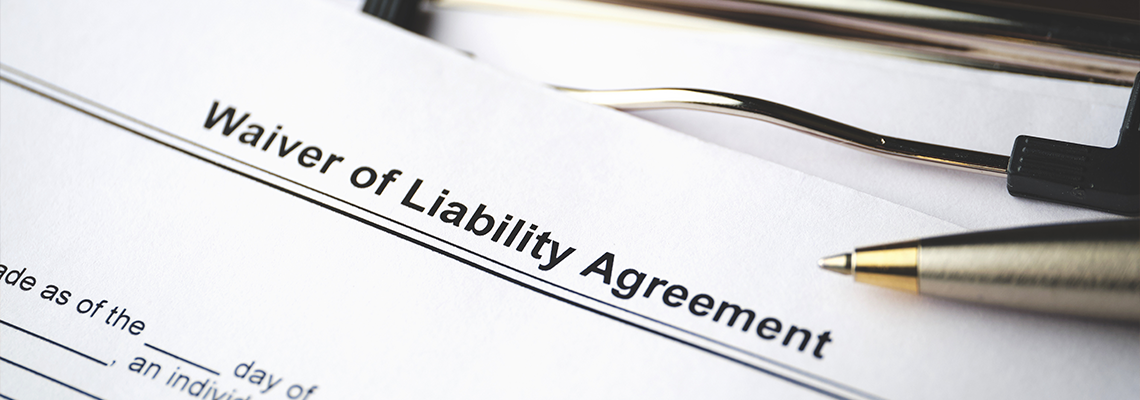
Can I File a Claim if I Signed a Liability Waiver?
Imagine this: you've signed up for an adventurous outing, say, a white-water rafting trip. Before you embark, you're handed a document to sign—a liability waiver. Nervous but excited, you skim through the lengthy jargon-filled paper and sign it anyway, not fully comprehending its implications.
A few weeks later, you're left with an injury from the trip. The question that haunts you now is, "Can I file a claim even though I signed a liability waiver?" This is a complex question, intertwined with nuances of law and the specific circumstances surrounding the signing of the waiver. It's important to understand your rights after an injury, and I am here to help you do that.
Serving Texas individuals at Rodman Law Office, I know that this situation is difficult. It's a complex issue that hinges on a deep understanding of the law and the particular circumstances surrounding the signing of the waiver. If you are in Austin, Texas—or anywhere throughout the state, including Travis County, Williamson County, and Hays County—and are in need of a personal injury attorney or simply someone to answer your questions, reach out to me today for support. I am here for you.
What Is a Liability Waiver?
Liability waivers, also known as release of liability agreements, are legal documents routinely used by businesses and organizations as a form of protection against legal claims in case of accidents or injuries. When you sign a liability waiver, you're essentially agreeing to take on the risks associated with a given activity or event, releasing the other party from any liability for injuries or damages that may occur.
However, it's important to understand that liability waivers are not always ironclad. There are specific situations where you may still be able to file a claim despite having signed a waiver.
When Is a Liability Waiver Invalid?
A liability waiver may not always be foolproof. There exist certain provisions that can render it void or unenforceable. To be considered valid and legally binding, a waiver must satisfy a host of requirements. If it falls short on any of these, you might be able to proceed with a claim, notwithstanding your prior consent to the waiver.
The stipulations for a waiver to hold up legally include:
Clarity: The language used in the waiver should be straightforward and comprehensible, leaving no room for misinterpretation.
Unambiguity: The terms and conditions spelled out in the waiver must be precise and unequivocal. There should be no vagueness or uncertainty.
Proper Execution: Both parties involved should duly sign the waiver with a clear understanding of its implications.
Public Policy Considerations: The waiver should not contravene public policy or legal norms and must maintain a fair balance of rights and obligations between the parties.
If the waiver fails to meet these criteria, it can be deemed invalid, and you may retain the right to pursue a claim.
Exceptions to Liability Waivers
Incurring an injury or facing damages even after having signed a liability waiver can be a distressing situation. However, rest assured that certain exceptions could potentially allow you to file a claim, despite the apparent hurdles presented by the waiver. These exceptions broadly fall under the following categories:
Negligent or Intentional Misconduct: A signed waiver often protects the other party from the legal consequences of ordinary negligence. However, this protection does not extend to cases of gross negligence or intentional wrongdoing. If you can demonstrate that the party's actions were either recklessly negligent or deliberately harmful, the waiver will not shield them from liability.
Limitations Embedded in the Waiver Language: The very language and terms outlined in the waiver might offer certain exceptions. These exceptions could include:
The waiver might only apply to specific kinds of injuries or damages. If your injuries or damages do not fall within these defined categories, you might still be able to pursue a claim.
The waiver might not protect the other party from responsibility for injuries resulting from gross negligence or intentional harm. Should this be the case, and you can prove such conduct on their part, your claim could potentially bypass the waiver's protections.
By closely examining the waiver's terms and language, you might discover crucial limitations or exceptions that could pave the way for the successful pursuit of your claim.
Statute of Limitations
The length of time, or "statute of limitations," for filing a claim after an accident can vary by jurisdiction and the type of claim. It's best to consult with a personal injury attorney as soon as possible to make sure you don't miss any deadlines.
What Happens if My Claim Goes to Court?
If your claim goes to court, several factors will come into play. The terms of the waiver, the circumstances surrounding the signing of the waiver, and the specifics of the accident or injury will be closely examined. If the waiver is found to be invalid or if exceptions apply, as in cases of gross negligence or intentional harm, you may have a valid claim. However, the process can be complex, and it's advisable to have legal representation.
Seek Legal Advice Today
Whether you can file a claim despite signing a liability waiver will depend on the specific facts and circumstances of your case. At Rodman Law Office, we're committed to helping you understand your rights and guiding you through what can be a complex legal process. So, if you've signed a liability waiver and suffered injury or damage, don't hesitate to reach out to us. We're here to help.
